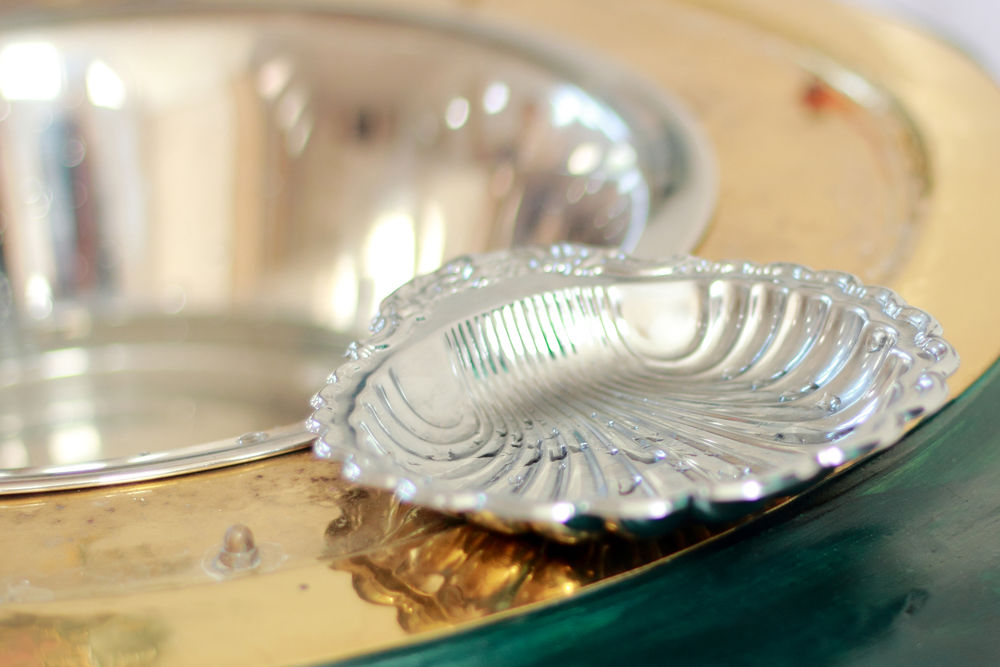A red pickup truck was overturned by the side of the road. The driver lay on the grass, thrown clear of the vehicle, crumpled, bleeding and unresponsive. A young man pulled his car off the road and sprinted to the side of the dying man.
He called 911, then rushed back to his car and grabbed the waxed cup from a fast-food restaurant that was in the cup holder of his car. It held some melting ice and water, left over from a soda he’d drank earlier in the day. He poured the water from the melted ice over the man’s forehead with the words, “I baptize you in the name of the Father and the Son and the Holy Spirit.” The man died a few minutes before the ambulance arrived.
The next day, the young man posted the question on a Catholic Q&A site: “I’m just wondering — was it a valid baptism?”
As a coordinator for the RCIA process, I’m used to fielding questions about baptism. The Catholic understanding of the sacrament is different from that of many of our non-Catholic brothers and sisters, and completely foreign to those who have never been “churched.”
According to the Catechism, baptism is the basis of the whole Christian life, the entry into the life of the Spirit. Baptism really does something: it frees us from original sin, makes us adopted children of God, incorporates us into the Church and makes us sharers in her mission (CCC, 1213). Jesus himself tells us baptism is a necessary part of salvation. That’s why it is important to pay attention to details in performance of the sacrament.
For a valid baptism of an adult, the Church requires an unbaptized person and pure water. The required form is to pour the water over the person’s head and say: “I baptize you in the name of the Father, Son and Holy Spirit.” In an emergency, any person — even a non-Christian — can do it, so long as the proper words are said and water is used.
The Church recognizes most Christian baptisms as valid because we believe, as St. Paul put it, in one faith and one baptism. Some baptisms are not considered valid, however, such as baptism under a non-Trinitarian formula or baptism in certain sects whose doctrine is not fully Christian. When candidates from these backgrounds are received into the Church, they are conditionally baptized with the words, “If you are not already baptized…” added to the customary formula. Pure water is also needed (Pope Gregory IX already established that baptism with beer is not valid).
Getting back to the young man, his question ignited a fairly heated debate in the comment box and some heavy-duty, Monday morning quarterbacking. Some questioned whether the baptism was valid given that the water was obtained from ice used to chill a soft drink.
The Catholic Encyclopedia addresses the issue this way: “Water derived from melted ice, snow, or hail is also valid. … As to a mixture of water and some other material, it is held as proper matter, provided the water certainly predominates and the mixture would still be called water. Invalid matter is every liquid that is not usually designated true water. Such are oil, saliva, wine, tears, milk, sweat, beer, soup, the juice of fruits and any mixture containing water which men would no longer call water. When it is doubtful whether a liquid could really be called water, it is not permissible to use it for baptism except in case of absolute necessity when no certainly valid matter can be obtained.” Thus, under the circumstances, the roadside baptism was arguably valid.
But, especially after reading comments criticizing the young man, my question was this: “Why would you worry about validity in that situation?”
Baptizing with melted ice from a soft drink is not something most of us will do and the circumstances in which a layperson might administer an emergency baptism are limited. In this particular case, there was no opportunity to correct any defect because the man died. Would it have been better not to attempt baptism out of fear the water wasn’t sufficiently pure, or to do what was possible under the circumstances? The man chose to do what was possible; were his acts wasted?
As important as it is to understand what makes a sacrament valid, in this case, there is another perspective to consider: God assures us of his presence and action in the sacraments properly done; he does not thereby declare his absence in other situations.
God’s mercy is always greater than we are. Death foreclosed the opportunity to correct any defect, if present, in this baptism. A young Catholic, faced with the imminent death of a stranger, did for him the very best he could do according to the tradition of his faith, with what he had at hand. He tried to give him access to life in Christ. He prayed for another human soul by his presence and his actions.
That’s something to give thanks for.
Barbara Golder had a 40-year career in medicine and law, including health care ethics. She is now the award-winning author of the 'Lady Doc' mystery series and serves as Director of Adult Faith Formation and Evangelization at the Basilica of Sts. Peter and Paul, Chattanooga TN. She blogs at ladydoclawyer.com.

